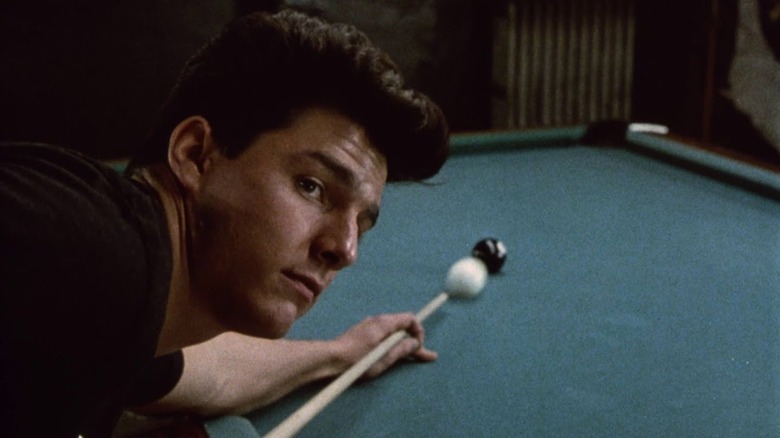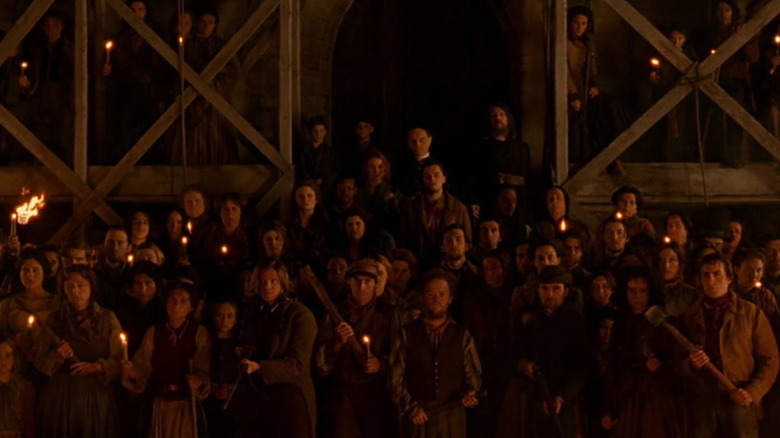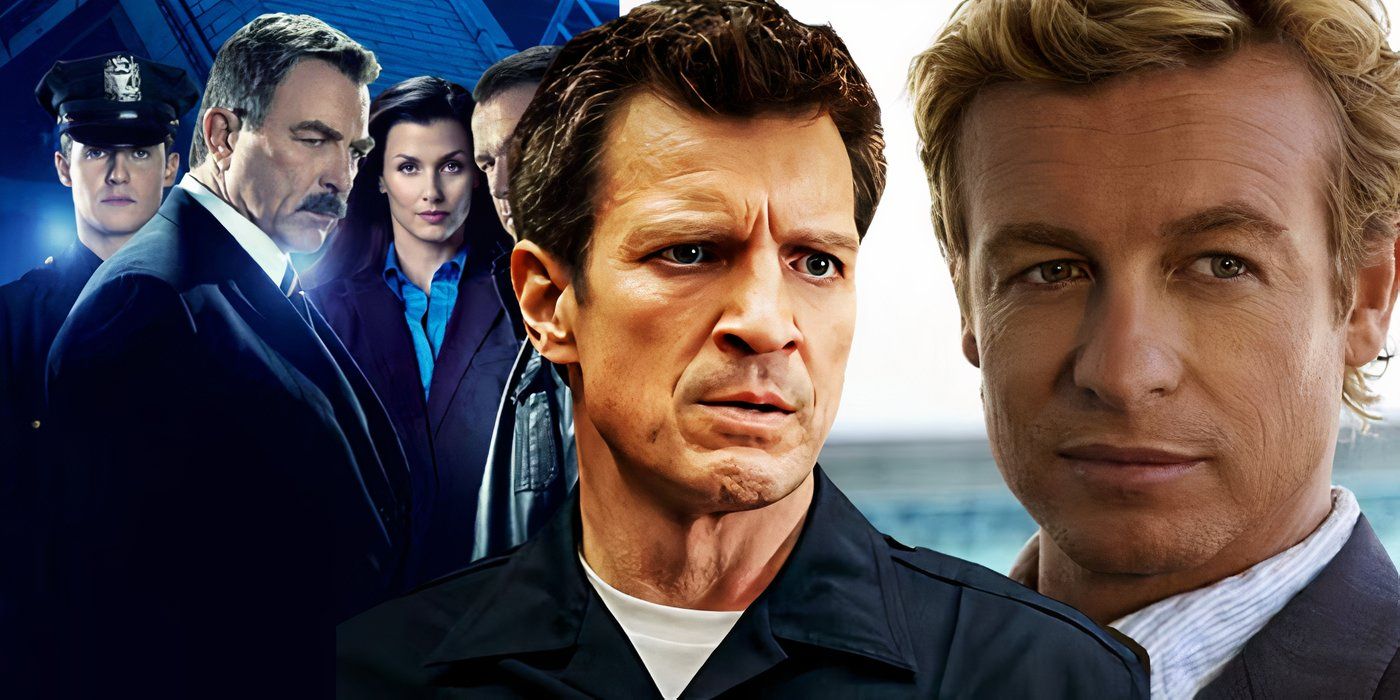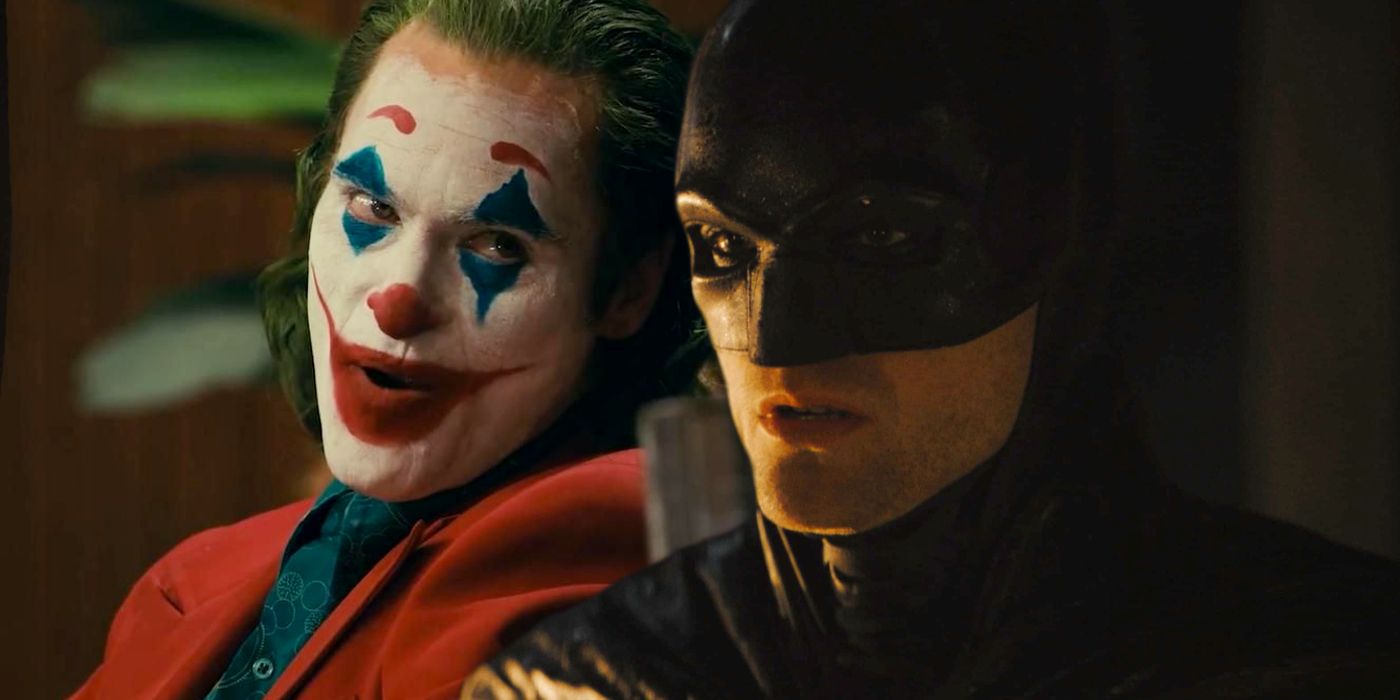
Touchstone Pictures
Martin Scorsese may be revered as one of our greatest living filmmakers, but he has often had to fight tooth and nail to bring his visions to the big screen. This is largely due to the box office. Yes, "Raging Bull," "The King of Comedy," and "Goodfellas" are considered masterpieces, but they were not hits in theatrical release. So when, after being continuously passed over for Academy Award recognition, he set his sights on making his mobbed-up magnum opus "Gangs of New York," just about every studio in town declined to bankroll his dream.
It wasn't like he'd sprung the project on the film industry. Alberto Grimaldi, the renowned Italian producer of classics by Federico Fellini, Sergio Leone, and Bernardo Bertolucci, had taken out an ad announcing the production of the film way back in 1977. But when the New Hollywood revolution died with the bank-breaking failure of Michael Cimino's "Heaven's Gate" (a great film regardless of how much money it lost), there simply wasn't much enthusiasm for "Gangs of New York."
This briefly changed in the early 1990s when Universal considered greenlighting the project on a budget of $30 million, but it never made it past the starting line and was eventually pawned off on Disney which, under family-friendly studio chief Joe Roth, wouldn't touch the extremely violent material. Finally, in 1999, Miramax, fresh off of swiping the Best Picture Oscar away from "Saving Private Ryan" with "Shakespeare in Love," took the plunge in part because they believed they could get Scorsese the Oscar he'd been denied for decades.
Miramax chief Harvey Weinstein cobbled together enough financing to ensure Scorsese could build his circa 1860s sets on the backlot of the legendary Italian film studio Cinecittà. But at a certain point, he started saying no to some of Scorsese's set-building requests. When Scorsese needed more, and couldn't get it from his financiers, he turned to one of the biggest movie stars on the planet.
The church that Tom Cruise built

Miramax
It was Harvey Weinstein's idea to fly Tom Cruise — who was promoting the horror film "The Others," which he'd produced for Miramax — into Rome to visit his "The Color of Money" director on the set of the film he'd been trying to make for over 20 years. It was a surprise drop-in meant to delight the Italian-American maestro, but upon seeing Cruise he launched into a complaint. Scorsese and production designer Dante Ferretti wanted to build a church with a full interior that would allow the director to do a 360-degree pan. Weinstein was against it, but in Scorsese's mind, it was essential. Cruise was moved by the director's plea.
In an Entertainment Weekly article about the film's production, Scorsese said, "Harv was concerned about what the interior of the church would cost. He was asking question after question. Finally, Tom said, 'Will you please give Marty the church? He needs it.'"
Put on the spot, Weinstein, who is currently serving a total of 39 years in prison for rape and sexual assault, coughed up the $100,000 required to complete the construction of the church. The production called the holy structure "St. Thomas." The film was nominated for 10 Academy Awards in 2003 but went home empty-handed. Scorsese would finally win Best Picture and Director for 2006's "The Departed."









 English (US) ·
English (US) ·